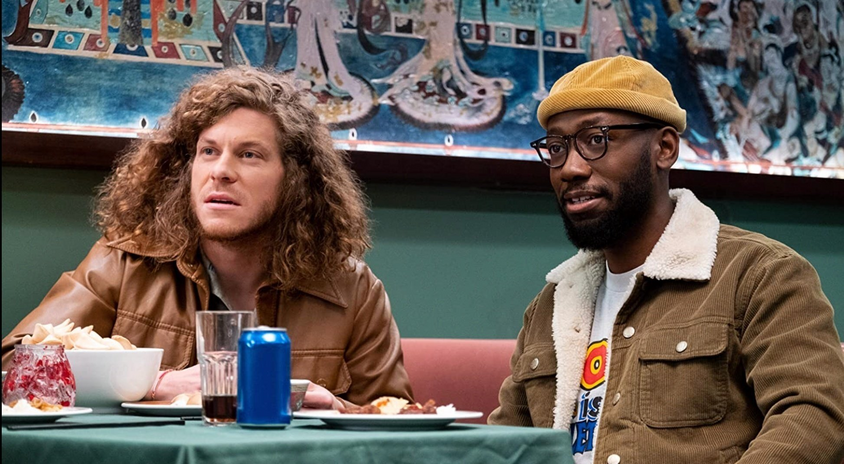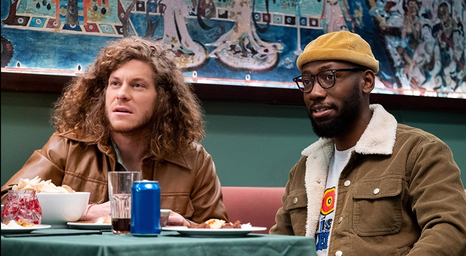I’ll admit that I was initially drawn to Woke for its hilarious and recognizable cast. From Lamorne Morris, who played the lovable Winston Bishop on Fox’s New Girl, to Workaholics’s Blake Anderson, the cast suggested that Woke would be a lighthearted binge perfect for my Saturday.
Boy, was I wrong.
Woke tells the story of self-titled “gentleman cartoonist” Keith Knight, and his journey as an artist and a social advocate. And even though Woke features adorable bits of animation and its fair share of sophomoric humor, the show manages to tackle serious social issues in a mature and substantial way. Topics such as police brutality, sexuality, racial profiling, and discrimination may be addressed by a talking trash can or an enthusiastic bottle of malt liquor, but the poignant social commentary speaks for itself.
The show takes place in modern-day San Francisco. As a Bay Area resident, I recognized many of the sights and experiences that defined the setting. The program so accurately depicts the culture of my community that I found myself uncomfortable at the incisive “Prayers for Kubby” episode that poked fun at society’s disregard for the human suffering next to them on BART.
Additionally, the setting plays an underlying but important role in the plot. In “progressive” areas such as San Francisco, there often arises an odd culture of bigoted liberalism, where (white) people feel comfortable displaying their internal racism because the community is “past it.” This is highlighted in the “Black People for Rent” art installment Keith — or Keef — hangs up over the city, which is met with blatant racism and some uncomfortable confrontations between characters.
While the characters themselves are almost unrealistic in their amusing quirks and distinct personalities, I felt strongly about their outcomes. I wanted to see how Keef would deal with his trauma, find a balance between his art and his advocacy, and eventually find his voice. I wanted to watch Clovis discover that there is more to intimacy than physicality. I wanted to witness Gunther realize his privilege and accept the responsibilities inherent in that privilege. This want is what made me keep watching.
While I heavily enjoyed the familiar setting and the character development, what I appreciated most about Woke was its ability to bring humor into each episode. Most programs that attempt to take on the serious subjects that define Woke will refrain from humor or criticisms that might offend its audience. It makes sense that television about race and oppression will choose to classify themselves as dramas — these are dramatic subjects. It would have been entirely easy for Hulu and Keith Knight to produce an intense and pensive series about his experiences (which are worthy of intensity and thought). But they chose instead to create something funny, something accessible. Something someone might pick up casually only to discover something piercing in its accuracy.
Further, the humor of Woke works so well because of the accurate commentary that is implicit within each joke. This show was able to make me laugh, but it also made me mad, uncomfortable. Woke is simultaneously a comedy and a conversation about some very unfunny subjects.


